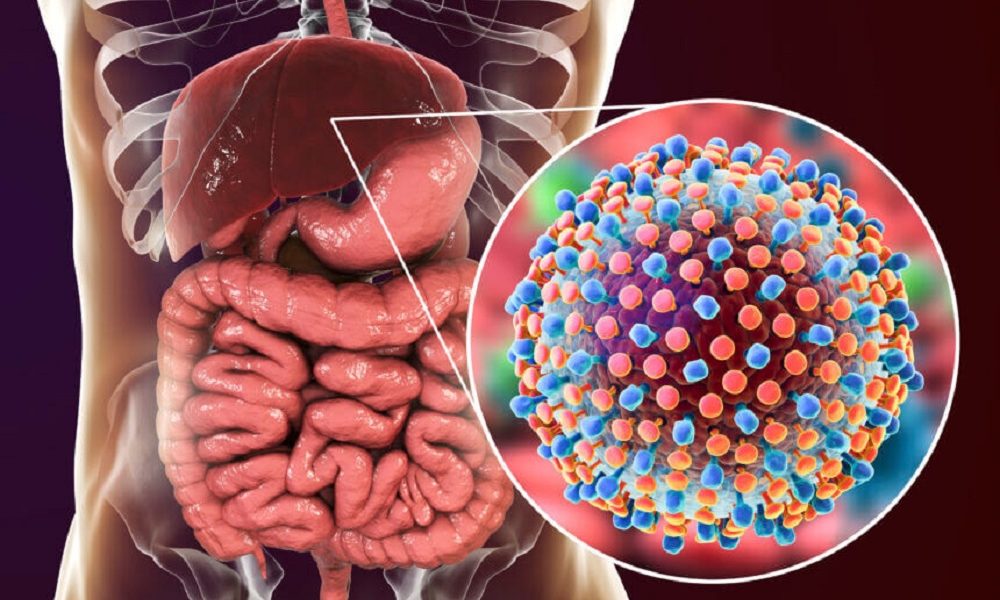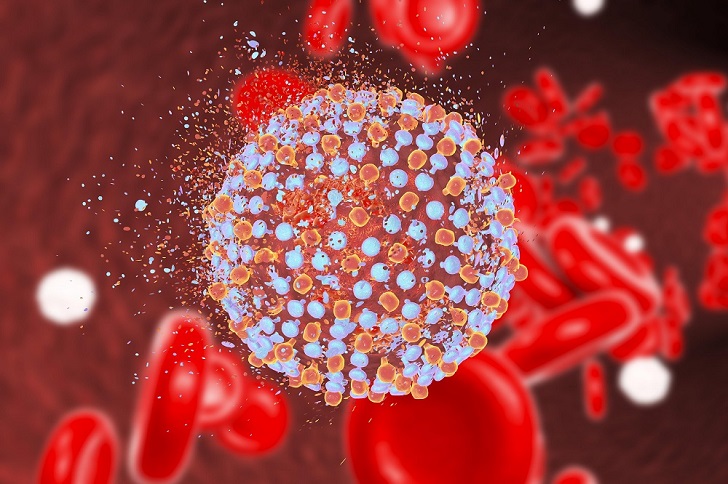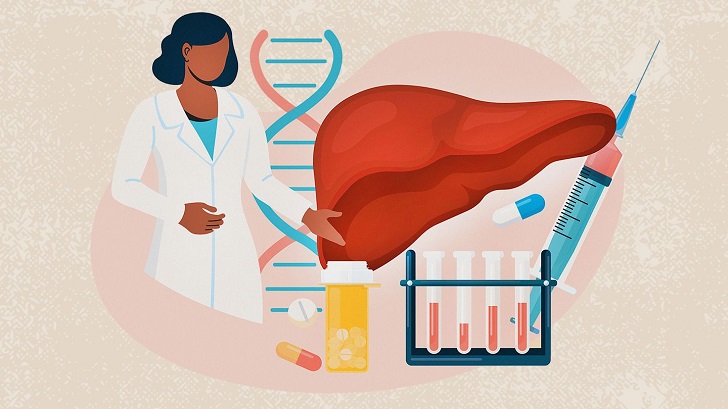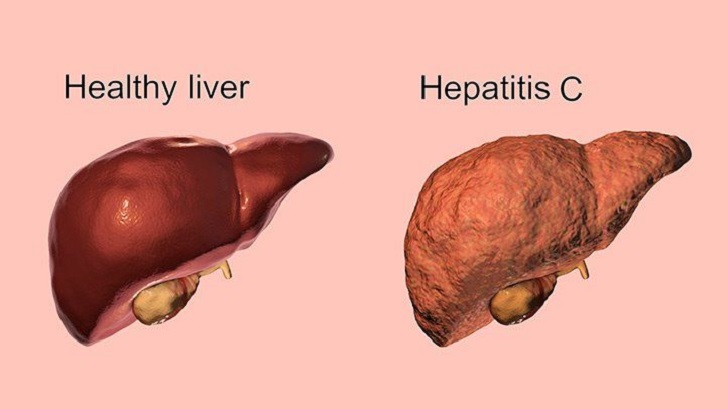
Revolutionary Cure for Hepatitis C Transforms Treatment

Hepatitis C is a viral infection that affects the liver and can lead to severe liver damage if left untreated. Over the years, significant advancements have been made in Hepatitis C treatment, offering various cures and treatments. This article provides an overview of the available options for curing and managing Hepatitis C, highlighting treatments’ evolution and effectiveness.
Interferon-Based Therapy
In the past, the standard treatment for Hepatitis C involved interferon-based therapy, which combined interferon injections with ribavirin. This antiviral medication boosts the body’s immune response to the virus.
However, interferon-based therapy had limitations, including low cure rates, significant side effects, and lengthy treatment durations. It was associated with flu-like symptoms, fatigue, depression, and anemia, often leading to poor treatment adherence.

iStock/ Medlineplus | Hepatitis C damages the liver over many years, progressing from inflammation to permanent scarring
Direct-Acting Antiviral (DAA) Therapy
The introduction of direct-acting antiviral (DAA) drugs revolutionized the treatment landscape for Hepatitis C. Unlike interferon-based therapy, DAAs specifically target the Hepatitis C virus itself, inhibiting its replication and reducing the viral load in the body.
These medications have transformed the management of Hepatitis C by offering high cure rates, minimal side effects, and shorter treatment durations. DAA therapy is highly effective across all genotypes of the Hepatitis C virus. The treatment duration can range from 8 to 12 weeks, depending on the specific medication and patient characteristics.
DAAs work by targeting specific proteins and enzymes essential for the replication of the virus, disrupting its life cycle and preventing further viral multiplication. This targeted approach has shown cure rates exceeding 95%, making it a breakthrough in Hepatitis C treatment.
Combination Therapies
In some cases, combination therapies may be used to optimize treatment outcomes. This involves combining different DAAs with or without ribavirin, depending on the specific genotype of the Hepatitis C virus and individual patient factors.

Adobe Stock / Everydayhealth | Antiviral medicines can cure up to 95% of the C infection, but access to diagnosis is low
Combination therapies help to overcome potential resistance and increase the likelihood of successful viral eradication. Treatment regimens are determined based on individual patient characteristics, including the stage of liver disease, previous treatment history, and other medical conditions.
Liver Transplantation
For individuals with advanced liver disease or liver failure due to Hepatitis C, liver transplantation may be considered as a treatment option. Liver transplantation involves replacing the diseased liver with a healthy liver from a deceased or living donor.
However, it is important to note that transplantation does not eradicate the Hepatitis C virus from the body. Therefore, antiviral therapy with DAAs is usually administered before or after transplantation to prevent reinfection of the new liver.
Post-Treatment Monitoring
Regular monitoring is essential to ensure sustained virologic response (SVR) and long-term liver health following successful treatment. SVR is achieved when the Hepatitis C virus becomes undetectable in the blood six months after treatment.
This indicates a successful cure and significantly reduces the risk of liver complications. Regular follow-up visits, blood tests, and imaging studies are conducted to assess liver function, monitor for any signs of disease progression, and address potential post-treatment concerns.

iStock/ Everydayhealth | If HCV is diagnosed before any liver damage, patients can continue to live a normal life
The landscape of Hepatitis C treatment has undergone a remarkable transformation over the years, offering a range of effective cures and management strategies. Introducing direct-acting antiviral (DAA) drugs has revolutionized the field, providing high cure rates, minimal side effects, and shorter treatment durations.
DAA therapy has significantly improved the quality of life for individuals with Hepatitis C and reduced the burden of liver-related complications. Combination therapies and liver transplantation are additional options for specific patient populations. It is essential for individuals at risk of Hepatitis C and those diagnosed with the infection to seek early diagnosis and treatment.
Regular screening, access to appropriate healthcare services, and raising awareness about the effectiveness of available treatments are vital in ensuring timely intervention and reducing the transmission of the virus. Continued research, innovation, and global efforts are necessary to expand treatment access and work toward eradicating Hepatitis C worldwide.
More in Life Hacks
-
`
Meditation Expert Shares 5 ‘Happy Hacks’ to Bring More Joy Into Your Day
Americans are more miserable than ever, and that is not just a feeling. Data backs it up. Even if you are...
May 9, 2025 -
`
A Peek Into the Chic Looks From Coachella 2025
Coachella 2025 just wrapped up. And if you were expecting flower crowns and fringe vests, think again. This year flipped the...
May 3, 2025 -
`
How to Combat the Current Stock Market Chaos
Market chaos can make even the calmest investor feel like jumping ship. Stocks fall, headlines scream, and suddenly everything feels urgent...
April 25, 2025 -
`
The Top 5 Benefits of Cooking With Kids Most Parents Don’t Know
Cooking with kids doesn’t just keep them busy. It is a game-changer with numerous benefits. The kitchen becomes a classroom, a...
April 18, 2025 -
`
How to Be Happy in Life? 5 Mindfulness Practices to Try
Mindfulness is a real way to feel better, live calmer, and enjoy life more. If you have been wondering how to...
April 12, 2025 -
`
Elon Musk’s Estranged Daughter Vivian Wilson Slams Dad As “Pathetic Man-Child” in Tell-All Interview
Vivian Wilson is not just Elon Musk’s estranged daughter anymore. She has become one of his boldest critics. In a new...
April 4, 2025 -
`
Trump Slams ‘Tesla Takedown’ Protesters as ‘Domestic Terrorists’ Amid Growing Unrest
President Donald Trump is calling out violent protesters targeting Tesla, branding them “domestic terrorists” and warning that they will face severe...
March 27, 2025 -
`
Everything We Know About the 14 Kids of Elon Musk
Elon Musk, the billionaire behind Tesla and SpaceX, is not just building rockets. He is also raising a large family. Musk...
March 21, 2025 -
`
5 Ways Meditation Can Help Improve Your Life After 40
Aging comes with its fair share of challenges, but it also brings wisdom and a deeper appreciation for life. If you...
March 14, 2025















You must be logged in to post a comment Login